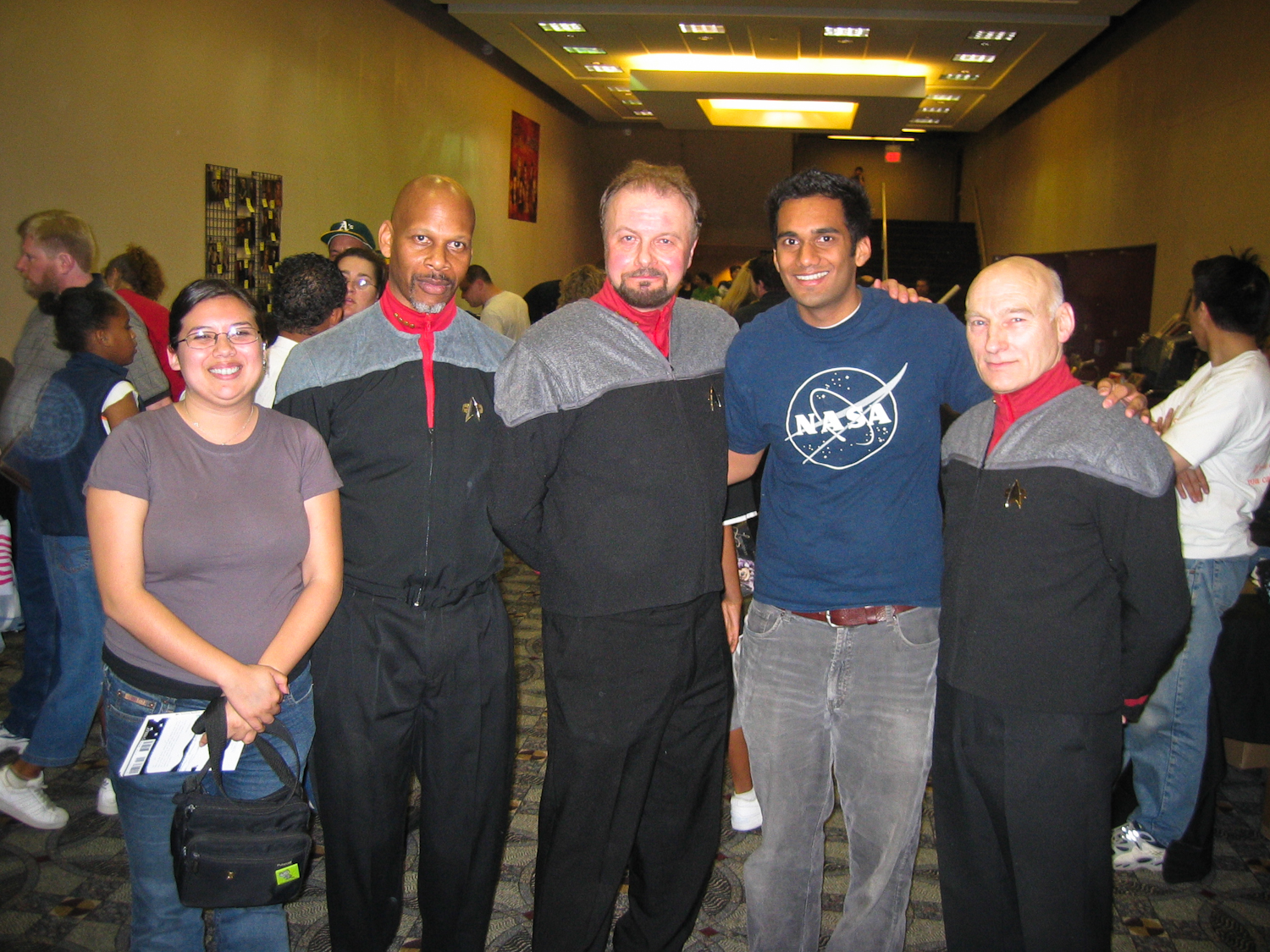Photo by Bill Wadman.
The story of Brain Knows Better begins on October 12, 2012. My friend from UCLA , Andrea Letamendi, just spoke at New York Comic Con about the psychology of cosplay and a few hours later we were discussing it over lunch.
“It was really cool to see you in action. Being such a hardcore geek on stage and backing up what you were saying with science,” I said. “But aren’t you afraid of what people in the field are going to think?”
Back in our college days, Andrea and I spent a lot of time reminiscing about Street Fighter 2 and Batman: The Animated Series. When we got to grad school, we both hid our geeky interests the way you might hide a tattoo on the first day of a new job. Seeing Andrea now, integrating all of the things she loved, was inspiring. And intimidating.
“You know, if I were still in school and constantly under scrutiny, I wouldn’t be so public about this other side of my life. But honestly, nothing bad has happened. It’s actually at comic cons where I feel like my life makes the most sense. It’s where I get to be a geek and a psychologist.”
I told Andrea that if I had her confidence, I would talk about how Star Trek influenced my life and how it led me to become a psychologist.
“You need to share your story. It’s about what can happen if you follow your passions. It would resonate with a lot of people.”
Andrea was the first person to encourage me to share my story.
I took Andrea’s advice, wrote Growing Up Trekkie, and emailed it to my friend Lowen Baumgarten (you know, the guy who later wrote the most controversial article on this site). He liked it and thought it would be cool to base a blog on the story. We spent some time mining my favorite music to get inspiration for a title and that’s how Brain Knows Better was born.
I shared my story on Facebook. My friends were really encouraging. Even people who hated science fiction liked Growing Up Trekkie. That felt awesome and made me want to write more.
My second article got fewer likes. I tried again. Even fewer people read my third article. The trend continued. Even though I spent hours developing each article, it didn’t seem like anyone wanted to read my work. I didn’t write anything in December. It just didn’t feel worth the time that went in to develop each post.
Lowen had some extra frequent flier miles he needed to use up and made a last minute trip to New York to hang out. I took the opportunity to vent.
“I’m thinking of pulling the plug on Brain Knows Better. The blog hasn’t gone anywhere and I have no clue why.”
“Yeah, let’s talk about that…”
I could tell Lowen also had something he needed to get off his chest.
“Your first story was great but everything after has been soooooo academic. Look at this.” He grabbed my laptop and pulled up my most recent article. “’Ridley’s Scott’s Prometheus and the Fallacy of Origins’ – I have no idea what that means and I don’t want to find out. What happened to your story? I don’t hear your voice anymore.”
Lowen has always been my Number 1.
Lowen was right. Brain Knows Better was boring. I thought back to Andrea’s panel and how honest she was about her own cosplay. That’s what made the talk awesome – her story combined with real research.
I rebooted everything in 2013 and launched with a story about how Firefly helped me understand the culture clash of my childhood. Overnight it became my most popular article and led to some cool conversations about multiculturalism (and Captain Tight Pants). The more I opened up, the more my work resonated with others.
My audience started to grow, as did my confidence as a writer. I wanted to do more, so I messaged Andrea with an idea I had for a comic con panel we could do together about the psychology of Star Trek versus Star Wars. She loved it, and it was picked up for both WonderCon and San Diego Comic Con. Comic Con fast tracked everything. It helped me make new geek friends, like Star Trek experts Larry Nemecek and John Champion. Somewhere along the way I was nicknamed “the science fiction psychologist”.
I met a lot of cool people at San Diego Comic Con.
But something didn’t feel right. The more I talked about my passions, the more I kept remembering my brother, Salman. He was a big part of my geek origin story. When he committed suicide in 2008, I buried my memories of him – it was the only way I was able to move on. Now that I was talking about being a geek publically, I was also beginning to feel like I was losing control of my emotions. This happened a lot at cons, especially when people asked me about my family. All that raw pain, guilt, and shame started resurfacing against my will.
Being honest as a writer had helped me up to now so it made sense to write about my current struggle dealing with my brother’s death. So that’s what I did. The first time I sat down to write a few paragraphs I cried. A lot. It ended up taking a month to get out, but the more I wrote the less raw it felt.
The response to this story was overwhelming. I’ve heard from over 3,000 people (I save every response) who also struggled with mental health, some who were mourning loved ones and others who also felt the stigma of suicide.
Everything changed after that. It felt like someone flipped a switch and I was able to talk about Salman like I used to when he was alive. I started a new job in the fall and everyone already knows about my brother and the impact he had on my life.
Salman has been with me ever since that story went live. He was with me while I read Ready Player One, explaining all the references to 80s culture that I missed. I imagined that we debated which next-generation system to get, the Xbox One or the PS4 – there would've been endless feuds about which one is better. And in that parallel universe, we had a massive discussion about Spike Jonze's Her. As a computer scientist working in speech recognition, he would have loved seeing the promise of his work realized in the film.
My brother lives on, in memories old and new.
I used to worry a lot about what people thought of me. I avoided any public displays of geekiness because I didn’t want people to think I was weird. That’s also why I shut down every thought I had about my brother – no one could see me lose control of my emotions. This kept me safe. But as I started opening up about whom I really was, I met a great group of people who shared my passions and struggles. Playing it safe just isn’t worth the cost of feeling alone anymore.
This past year was the most honest of my life. Everything that was good came from writing truthfully and connecting with people like you. Thank you for making 2013 so awesome.




















